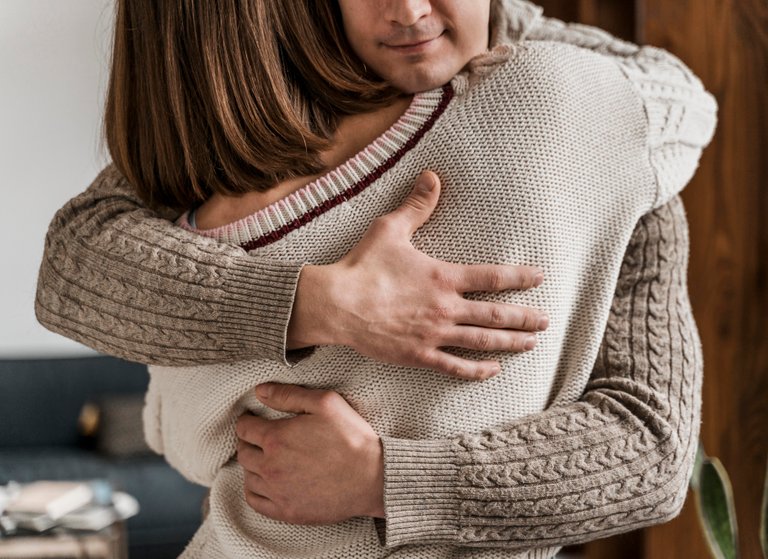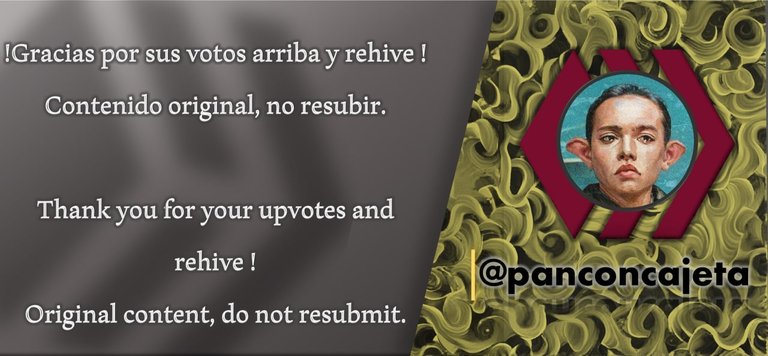El arte de aprender a perdonar. // The art of learning to forgive.

Foto de no violencia creado por freepik - www.freepik.es
Desde el momento en que nacemos, comenzamos a experimentar las emociones. Durante nuestras primeras relaciones interpersonales, aprendemos lo que es el amor y también lo que es el dolor. A medida que crecemos y nos vamos abriendo más al mundo, estas sensaciones se intensifican y nos enfrentamos a heridas más profundas. Muchas veces, estas heridas son causadas por la persona que más amamos: nuestros padres, hermanos, pareja o amigos.
Estas experiencias negativas pueden afectar nuestro modo de ver la vida y de relacionarnos con los demás. Pero también nos enseñan una lección invaluable: la importancia de aprender a perdonar.
El perdón es una de las claves para sanar las heridas del pasado y poder avanzar hacia un futuro mejor. Perdonar no significa olvidar lo sucedido ni excuses las acciones de la otra persona. Significa aceptar lo sucedido y liberarse del rencor, la ira y el dolor que nos causó.
Muchas veces pensamos que el perdón es un acto de debilidad, pero nada más alejado de la realidad. El perdón requiere mucha fuerza y coraje, ya que implica reconocer nuestros propios sentimientos y abrirnos a sanar las heridas del pasado. A menudo la gente no entiende lo importante que es el perdón. Piensan que se trata de un acto débil o incluso de una falta de carácter. Se sienten como si perdonar significara olvidar lo que les hizo daño y, por lo tanto, renunciar a sus derechos. Pero nada podría estar más lejos de la verdad.
El perdón es un acto de gran fuerza y determinación. Significa que usted es lo suficientemente maduro y seguro como para enfrentar el dolor y la injusticia que siente, y superarlos. No significa olvidar lo que pasó, sino aprender a lidiar con ello de una manera más saludable.
La importancia del perdón radica en su poder para sanar heridas emocionales profundas y restaurar relaciones dañadas. Tanto si has sido tu quien ha cometido el error como si ha sido la víctima, el perdón puede liberarlo del dolor y la rabia, abrirle el corazón y le permitirá avanzar con su vida.
Sucede que de manera frecuente la gente tiene dificultades para perdonar porque no entienden cómo funciona el proceso. Piensan que significa ignorar lo que pasó o pretender que no les hizo daño. Esto no podría estar más lejos de la verdad. El perdón requiere consciencia, no ignorancia. Es un proceso activo en el que usted decide enfrentarse a lo sucedido, tratar de comprenderlo y luego tomar la decisión de perdonar.
El primer paso para perdonar es reconocer lo sucedido y aceptarlo. Esto puede ser difícil, sobre todo si has sido tu víctima de un acto grave como el abuso o la traición. Se puede sentir como si estuviera dando permiso para que aquello sucediera o incluso comenzando a culparse a uno mismo por ello. Permitirse sentir lo que siente es crucial para poder avanzar hacia el perdón. Llorar, gritar o golpear almohadas son todos formas saludables de liberación si se siente que estas bloqueado emotivamente.
Una vez que hayas reconocido tus verdaderos sentimientos, será posible empezar a entender por qué reaccionaste así. ¿Qué necesidades tenías en aquel momento? ¿Qué necesitaba aquella persona? Siendo honesto contigo mismo, trata de comprender las necesidades subyacentes tanto tuyas como de la otra persona en el momento en cuestión. Cuando somos heridos por los demás, reaccionamos sin pensar debido al dolor y la rabia que sentimos. Es importante recordar que nadie es perfecto y todos cometemos errores. Seguir adelante requiere humildad, así como fuerza.
Finalmente cuando aprendemos a perdonar, estamos abriendo las puertas para recibir amor y felicidad. También nos estamos dando la oportunidad de tener más plenitud en nuestras relaciones actuales y futuras. El perdón nos ayuda a superar los resentimientos del pasado para poder disfrutar de un presente más pleno y saludable.

From the moment we are born, we begin to experience emotions. During our first interpersonal relationships, we learn what love is and also what pain is. As we grow up and become more open to the world, these feelings intensify and we are confronted with deeper wounds. Many times, these wounds are caused by the person we love the most: our parents, siblings, partner or friends.
These negative experiences can affect the way we view life and relate to others. But they also teach us an invaluable lesson: the importance of learning to forgive.
Forgiveness is one of the keys to healing the wounds of the past and moving forward to a better future. Forgiveness does not mean forgetting what happened or excusing the other person's actions. It means accepting what happened and freeing ourselves from the resentment, anger and pain it caused us.
We often think that forgiveness is an act of weakness, but nothing could be further from the truth. Forgiveness requires a lot of strength and courage, as it implies recognizing our own feelings and opening ourselves to heal the wounds of the past. Often people do not understand how important forgiveness is. They think it is a weak act or even a lack of character. They feel as if forgiving means forgetting what hurt them and therefore giving up their rights. But nothing could be further from the truth.
Forgiveness is an act of great strength and determination. It means that you are mature and confident enough to face the pain and injustice you feel, and overcome it. It does not mean forgetting what happened, but learning to deal with it in a healthier way.
The importance of forgiveness lies in its power to heal deep emotional wounds and restore damaged relationships. Whether you were the one who made the mistake or the victim, forgiveness can free you from pain and anger, open your heart and allow you to move forward with your life.
It often happens that people have difficulty forgiving because they don't understand how the process works. They think it means ignoring what happened or pretending that it didn't hurt them. This could not be further from the truth. Forgiveness requires awareness, not ignorance. It is an active process in which you decide to face what happened, try to understand it and then make the decision to forgive.
The first step to forgiveness is to acknowledge what happened and accept it. This can be difficult, especially if you have been your victim of a serious act such as abuse or betrayal. It can feel like you are giving permission for it to happen or even starting to blame yourself for it. Allowing yourself to feel what you feel is crucial in order to move toward forgiveness. Crying, screaming or punching pillows are all healthy forms of release if it feels like you are emotionally blocked.
Once you have acknowledged your true feelings, it will be possible to begin to understand why you reacted the way you did. What needs did you have at the time? What did that person need? By being honest with yourself, try to understand the underlying needs of both yourself and the other person at the moment in question. When we are hurt by others, we react without thinking because of the pain and anger we feel. It is important to remember that no one is perfect and we all make mistakes. Moving forward requires humility as well as strength.
Finally, when we learn to forgive, we are opening the doors to receive love and happiness. We are also giving ourselves the opportunity to have more fulfillment in our current and future relationships. Forgiveness helps us to overcome past resentments in order to enjoy a fuller and healthier present.
Translated with www.DeepL.com/Translator (free version)

Imgen hecha por @fclore22